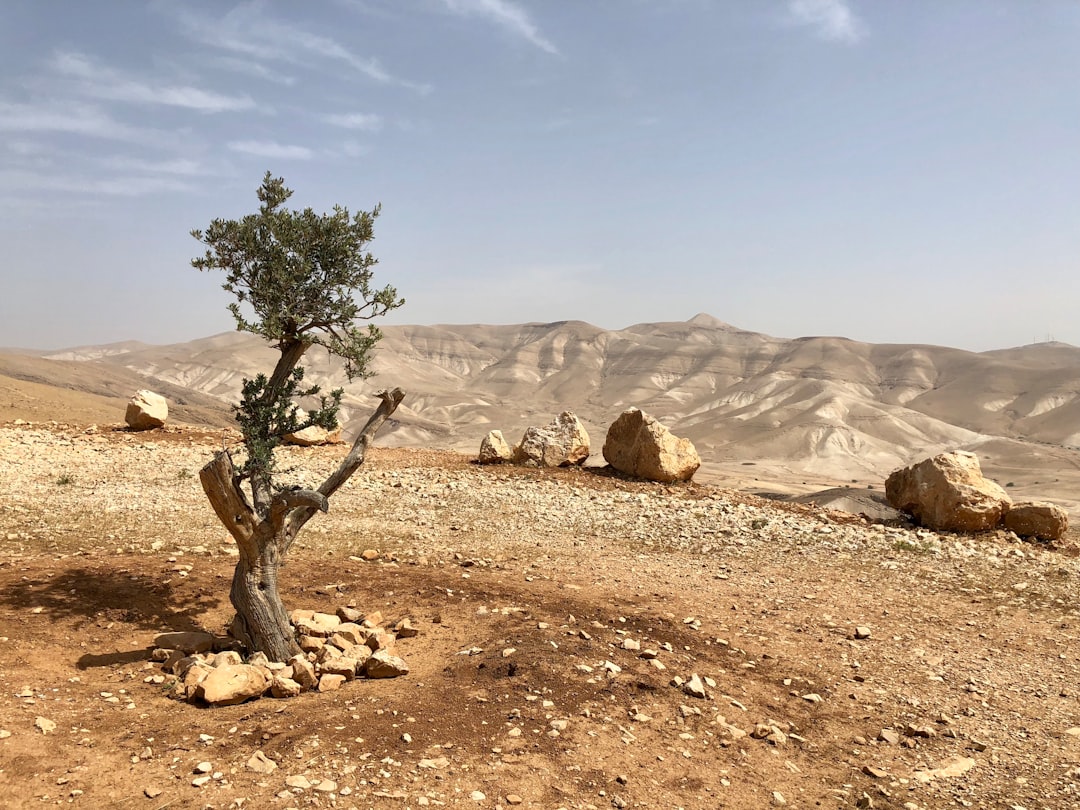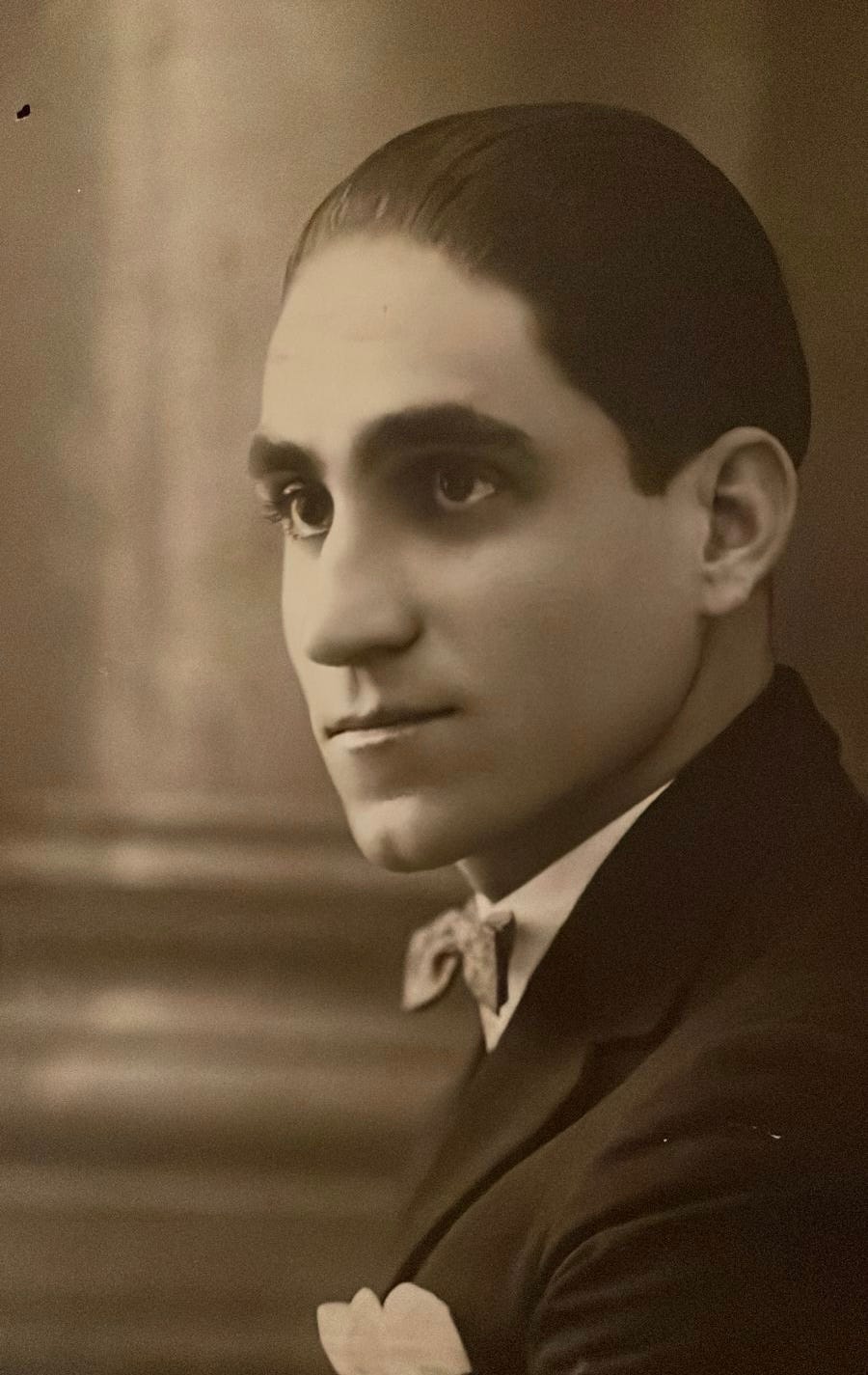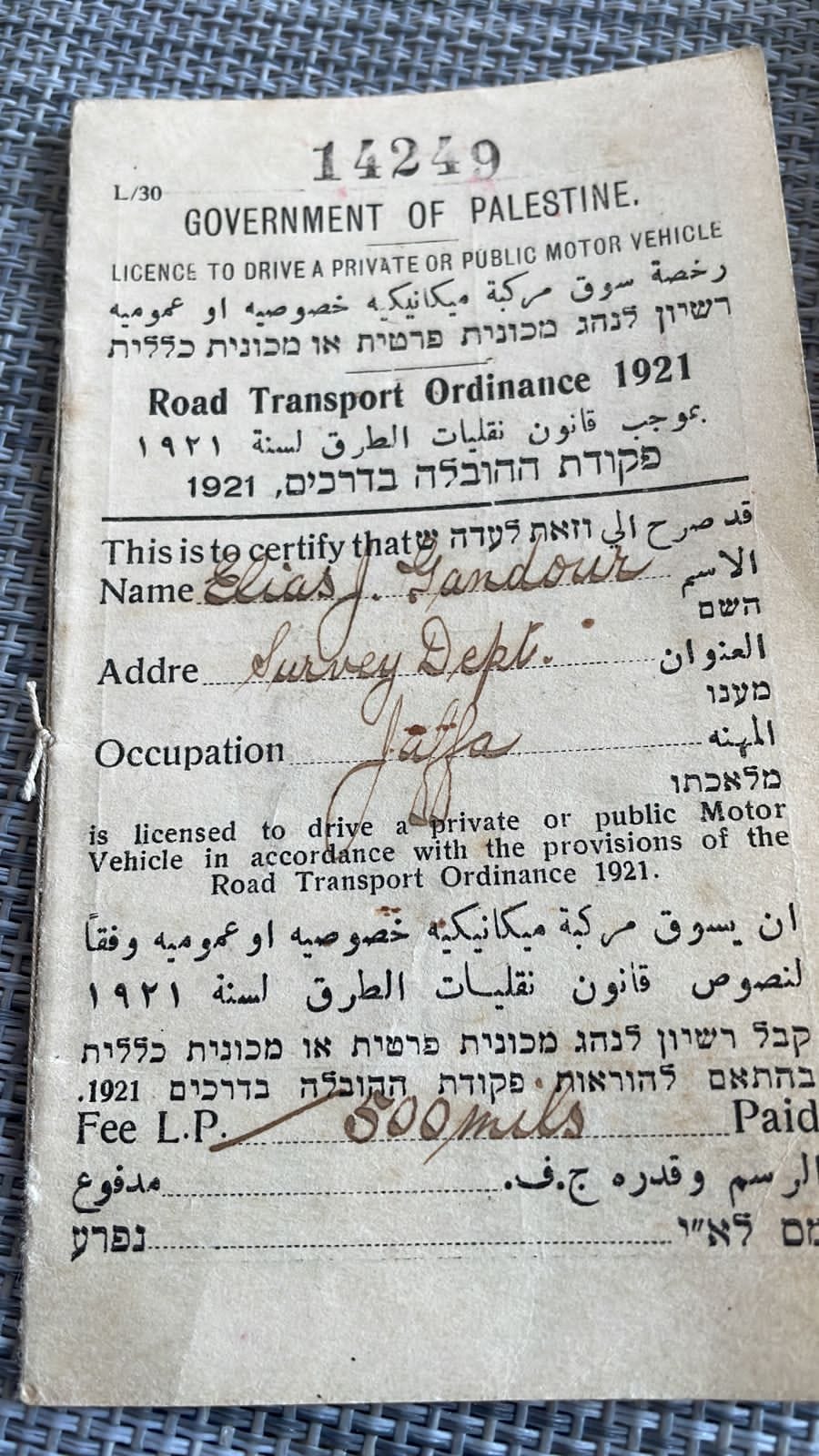Hello, it’s Jen here. A little over a week ago, I asked The Flock’s paying subscribers how this newsletter could help right now. Overwhelmingly, the response was that you wanted to better understand the history of Palestine. As always on The Flock, my preference on topics such as these is to turn to writers with lived experience, so I am honoured today to bring you this piece of writing by Dina Ghandour. Dina has asked me to share this work with all of you today in order to better raise awareness of the situation faced by many in the Palestinian diaspora, so this newsletter is free to read. Please feel free to share it.
To some, what’s happening in Israel and Palestine is complicated – a conflict that seems to have been going on for decades. To others, it’s a struggle that entered their awareness for the first time on October 7, 2023. To me – a Christian Palestinian – it’s the story of my family, my land and my ancestors.
What is happening in Gaza right now is, for us, not a conflict or a complex political conundrum, but a reality of lived experiences and heartbreaking stories, told at the dinner table by both of my parents for as long as I can remember, and told to them, as you’ll see, long before then.
The atrocities that took place on October 7 this year and the impact they have had cannot be overlooked. It saddens me greatly that innocent lives were taken, families torn apart and communities shaken.
What also must not be overlooked is the historical context within which these events sit. To ignore our history is to make the problematic assumption that what we are seeing today is happening in a vacuum. It’s a perspective that contributes to a false narrative and breeds Islamophobia – because let’s face it, Arabs (and Muslims in particular) have consistently been portrayed in news media and Hollywood movies as the bad guys, or terrorists, for years now.
More importantly, this myopic perspective denies and disregards our history and our struggles, the transgressions and land thefts committed against Palestinians over the last 75 to 100 years.
So, rather than focusing on the events of October 7 alone, one must instead take pause and ask: What conditions aided and fostered the rise to power of extremists?
Let’s go back to where it all began…
Palestine was a land that found itself governed by a few empires over time – from the Romans (62BC-66AD) to the Ottomans (1517-1917AD) and, most recently, the British Empire (1917-1948).
Back then, in the early 1900s, Palestine had a population of approximately 700,000 people. Muslims, Jews and Christians lived harmoniously in a vibrant yet diverse community – all Arabs under one identity: Palestinian. In fact, my grandfather’s good friend and next-door neighbour was an Arab Jew and they were very close until my grandfather had to flee his hometown in 1948 – more on that to come.
After the end of World War I, the British took over Palestine from the Ottomans and, in 1917 with the financial and political support of a budding Zionist movement, issued the Balfour Agreement – a decree to create a home for Jews from all over the world. This home, it was decided, would be Palestine.
Zionism is a nationalist movement to establish a homeland for the Jewish people that emerged in the 19thcentury. While Palestine became its focus, Kenya (or British East Africa as it was known at the time), was originally a proposed safe haven.
Between 1922 and 1935, the Jewish population rose from nine to nearly 27% of the total population of Palestine – most arrivals being European Jews fleeing horror and adversity in their own countries.
Tensions rose. In November 1947, the UN General Assembly passed a resolution partitioning Palestine into two separate states, one Jewish and one Arab. Land and homes were stripped away from their Arab owners and given unlawfully to Palestine’s newest residents, culminating in 1948 in what is today called The Nakba – ‘The Catastrophe’ in Arabic – and also the birth of the state of Israel.
The Nakba saw more than 750,000 Palestinians flee their homes under Jewish military force – over half the population at the time. Some were pushed into Gaza and the West Bank as refugees, while others – including my family – fled to neighbouring countries like Syria and Lebanon. My grandfather, my pregnant grandmother and their daughter jumped on a truck from their hometown in Jaffa and fled for safety to Jordan. Ironically, my grandfather had been working in the land department and included with their few belongings the documents and deeds to land ownership by Palestinians, many of whom (including my family) would never be able to return.
As early as December 1948, the UN General Assembly began issuing calls for refugee return, property restitution and compensation. Yet since that time, Israel has continued to systematically and illegally claim more and more land as its own – all the while growing a sophisticated Army with the support of almost $4bn annual funding from the United States. The Israeli government’s occupation of Palestine and violation of 28 resolutions of the UN Security Council so far has allowed it to forcibly remove Palestinians from their homes, arrest them without warrants (many in jail are women and children with no chance of due process), build illegal settlements, humiliate them publicly on a daily basis, burn their land and olive trees -- ultimately taking away their livelihood, humanity and freedom.
Each year, thousands of settlers come to Israel as part of its Birthright program, an initiative that dictates that by being born Jewish, any person from any country has the right to make Israel and the Occupied Territories their home. Their Arab neighbours, by contrast, are routinely denied their own right of return. According to the United Nations and as reported by Reuters earlier this year, some 700,000 settlers now live in 279 settlements across the West Bank and East Jerusalem today, up from 520,000 in 2012.
Moreover, Palestinians living in what is left of Palestine’s West Bank and East Jerusalem live in true apartheid rule, forced to pass through brutal checkpoints daily, told which specific roads they can and can’t drive on, and ordered to seek permission simply to visit family, hospitals or work on the other side of the ‘separation wall’ Israel built in 2002. In Gaza, Israel imposed a blockade in 2007, restricting the movement of people, food, electricity and fuel and rendering the region the “largest open-air concentration camp” as termed by Jewish academic Norman Finkelstein.
From the political side, the Palestinian Authority governed these occupied territories and it wasn’t until 1987 that Hamas was formed to govern the Gaza strip. Though officially founded in the late 1980s, Hamas, an Arabic acronym for ‘Islamic Resistance Movement’, had been on the fringes since the 70s fighting against the daily brutality faced by Palestinians. Interestingly, Hamas was indirectly funded and supported in its formation in the late 1980s by Israel and the West in an attempt to counterbalance the growing leftist movements of the Palestinian Liberation Front and Fatah Party.
And so here we are.
They say there are always two sides to a story.
Only in this story today, one side is now the world’s fourth most powerful military after Russia, the US and China and the other is a people – mostly innocent civilians, 50% of them under 18 – fighting every single day for their basic human rights. Some have resorted to violence – a response which, as physician, author and holocaust survivor Gabor Maté noted in an interview on October 28, is not justifiable but is explainable. The two are not the same.
Now, what’s happening in front of our eyes today in Gaza is a second Nakba – so far claiming the lives of more than 8,000 Palestinians and counting, half of them children, in addition to the displacement of 1.1 million people.
But this isn’t a history we want to see repeated. Instead, it’s time to let the liberation of the Palestinian people provide hope to all those suffering and suffocated. It’s time for a ceasefire. It’s time for freedom.
Dina is a Palestinian yoga instructor, meditation facilitator and Reiki Master energy healing practitioner based in Dubai, and. Find her online here or on Instagram here.
Dina’s recommendations for those who want to read more, speak more and share more…
Voices to follow on Instagram:
Books on the history of Israel and Palestine:
The 100 Years’ War on Palestine by Rashid Khalidi
The Ethnic Cleansing of Palestine by Ilan Pappé
Gaza: An Inquest Into Its Martyrdom by Norman Finkelstein









